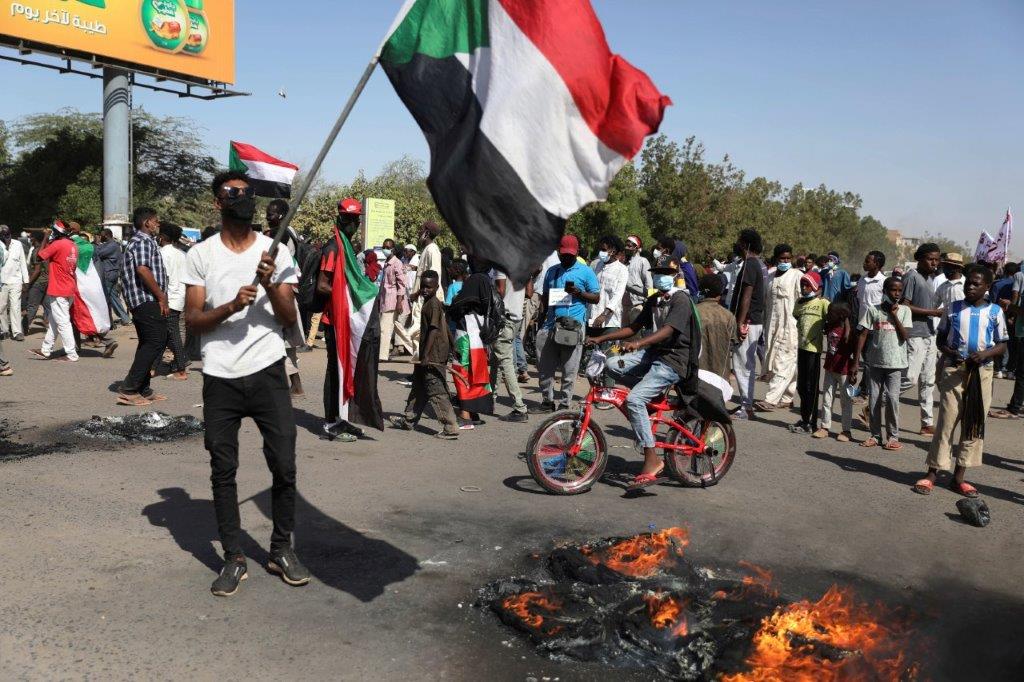
The “new Cold War” between the US and Russia in northeast Africa intensifies. Washington and Moscow struggle to increase their military presence in Sudan.
By Nikola Mikovic
Sudan reportedly decided to suspend an agreement granting Moscow permission to construct a naval base just north of Port Sudan, the country’s main commercial hub on the Red Sea. Did the United States pressure the government in Khartoum not to do any business with the Kremlin?
At the end of 2020 Russia announced the signing of a 25-year deal to build a naval base in Sudan that would be able to berth up to four warships at a time, including nuclear-powered vessels. The agreement with Sudan also would allow Moscow the right to use Sudanese airspace.
The location of the facility, which was supposed to be able to accommodate up to 300 military and civilian personnel, would be close to the main Sudanese trading center, Port Sudan, which itself sits almost in the middle of the southern shore of the Red Sea.
Last week, however, Middle Eastern media reported that Sudan has suspended its arrangements with Moscow. The Russian Embassy in Sudan, on the other hand, said that information about the suspension of the agreement on the creation of a Russian naval base in Sudan "do not correspond to reality."
“This agreement will enter into force only after both parties ratify it”, Russia’s Embassy in Khartoum wrote.
In other words, the deal itself has not been canceled. It has simply not entered into force yet, and is waiting for the ratification. It remains highly uncertain if the agreement will ever be ratified, though. Traditionally, any Russian action aboard is always met with tough opposition, and Sudan is no exception.
The United States did not officially oppose Russia’s plans to open a navy base in the northeast African country, but there are indications that Washington’s activities in Sudan aim to prevent Russian infiltration into this strategically important part of the world.
AFRICOM
At the end of January, the Deputy Commander of AFRICOM for Civil-Military Cooperation Andrew Young and the head of the Naval Intelligence Directorate Rear Admiral Heidi Berg, reportedly paid an official visit to Sudan.
Also, on February 24, USNS Carson City entered Port Sudan, while on March 1the USS destroyer Winston S. Churchill docked in Sudan for the first time in 25 years.
It is unlikely a pure coincidence that the US military and diplomacy focused on the northeast African nation right after Moscow announced its plans there. Moreover, according to reports, Sudan has already received $820 million from the World Bank and donor countries for the program called The Basic Income Scheme, which aims to cover 24 million people in 12 states for six months. Besides that, Sudan gained access to $2 billion in a new World Bank financing, and the US played a key role in this process.
“I am grateful to the United States Government for its generosity in facilitating the arrears clearance process. I congratulate Sudan’s government for its commitment to reform, and look forward to opportunities for greater World Bank Group support to the Sudanese people”, said World Bank Group President David Malpass.
Indeed, Washington yet again demonstrated the effective work of its diplomats and military advisers, forming levers of economic and political influence in a country that until recently was formally considered hostile.
Ratification of agreement
If Sudan does not ratify the agreement with Russia, the Kremlin will lose the opportunity to have a small overseas base in the Red Sea, which would help Moscow establish control over the transit flows of oil that pass via pipelines through the region.
The bulk of local oil fields are located in neighboring South Sudan, but its oil exports are almost entirely dependent on the Republic of Sudan. The only pipeline through which landlocked South Sudan can transport its energy passes through the territory of Sudan, its northern neighbor.
Hence, energy was likely one of the most important reasons for Russia’s plans to build a navy base in the Horn of Africa. Now it will likely be the United States, rather than Moscow, that will benefit from the lucrative energy business in the northeast Africa, unless the Kremlin and its “dear American partners” make a deal over Sudan. It would not be improbable for Khartoum to allow both, Russia and the US, to cement their military presence on its coast.
For now, the Kremlin is expected to remain relatively silent over what appear to be a Russian geopolitical defeat in Sudan. In the foreseeable future, however, if the deal with Sudan fails to be implemented, Russia could try to negotiate the free entry of its ships to ports of Eritrea.
In addition it could increase its positions in the Central African Republic, but Sudan’s 1.5 million tons of proven uranium reserves would likely belong to the US.
Nikola Mikovic is a Serbian journalist and a senior Geopolitical Analyst he publishes often for The Levant News.







Well that should get terrorism and human rights abuses vanquished from Sudan finally - instead of the complete corrupt opposite.